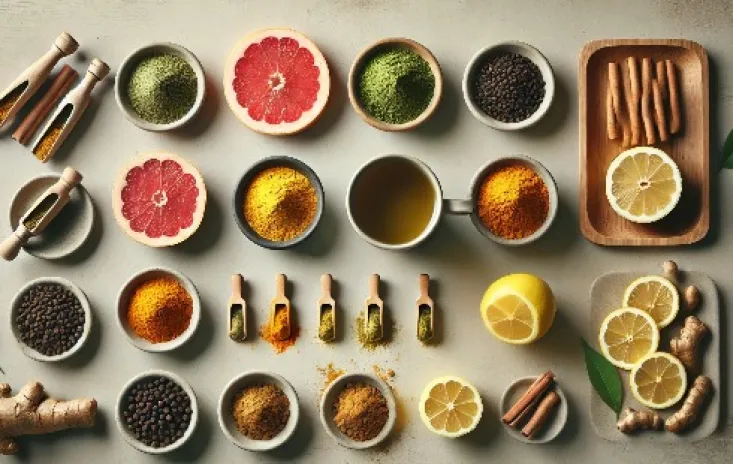
8HoursMining cloud mining platform, daily profits up to $9,337
Section: Business
 Many regular users seek ways to maximize their kratom experience through a process called potentiation. Potentiating kratom means combining it with certain natural substances to potentially enhance or extend its effects without increasing the dose. When done correctly, potentiation can reduce tolerance buildup, improve consistency, and make smaller doses more efficient.
Many regular users seek ways to maximize their kratom experience through a process called potentiation. Potentiating kratom means combining it with certain natural substances to potentially enhance or extend its effects without increasing the dose. When done correctly, potentiation can reduce tolerance buildup, improve consistency, and make smaller doses more efficient.
But not all combinations are safe--or effective. Some foods, herbs, or drugs may interfere with kratom's natural alkaloids or increase risks. That's why understanding potentiators--and what to avoid--is critical for anyone using kratom regularly.
What Are Kratom Potentiators?
A potentiator is any substance that interacts with another to either:
Potentiators often involve foods, supplements, herbs, or beverages that impact how the body absorbs and metabolizes the alkaloids, particularly mitragynine and 7-hydroxymitragynine. Many people use these natural ingredients to potentiate kratom powder effectively, without increasing their serving size.
Why Use Natural Potentiators?
Natural potentiators are often preferred because they're:
Often used traditionally alongside herbs like kratom Importantly, natural potentiators allow users to take less kratom, potentially reducing tolerance over time.
The 5 Best Natural Kratom Potentiators
Below are five of the most commonly used, safest, and most effective natural potentiators that pair well with kratom powder or kratom tea.
1. Citrus Juice (Lemon, Lime, Grapefruit)
Citrus fruits, especially lemon and lime, contain acidic compounds that may help extract alkaloids when brewing kratom tea. Grapefruit contains enzymes that can inhibit certain liver pathways, possibly prolonging the effects of kratom by slowing its breakdown.
How to use:
Note: Grapefruit can interfere with many medications. If you're on prescription drugs, consult a healthcare provider before using grapefruit as a potentiator.
2. Turmeric and Black Pepper
Turmeric contains curcumin, a compound with anti-inflammatory properties. Black pepper contains piperine, which enhances curcumin's bioavailability and may slow the metabolism of certain compounds, possibly extending kratom's duration.
How to use:
Note: Turmeric may thin the blood. Avoid it if you have bleeding disorders or are on anticoagulant medication.
3. Cat's Claw (Uncaria tomentosa)
Cat's Claw is a South American vine known for its immune-modulating and antioxidant properties. Anecdotally, users report that it may synergize with kratom to support mental clarity and overall balance.
How to use:
Note: Limited clinical research exists on the interaction between Cat's Claw and kratom. Use conservatively and monitor your response.
4. Magnesium
Magnesium plays a role in neurotransmission and muscle function. Some kratom users take magnesium to help prevent tolerance, especially with long-term use.
How to use:
Note: Excess magnesium can cause digestive upset. Stick to recommended doses.
5. Chamomile or Valerian Root
These calming herbs are often consumed in teas or tinctures for relaxation. When combined with kratom (particularly red strains), they may complement its more grounding properties.
How to use:Note: Valerian may cause drowsiness. Do not mix with alcohol or operate machinery afterward.
What to Avoid: Dangerous or Ineffective Kratom Combinations
While some substances enhance kratom, others can interfere with its effects or create unnecessary risks. Here's what to avoid:
Final Thoughts: Potentiators Can Elevate Your Kratom Routine
Potentiating kratom with natural substances like lemon juice, turmeric, or chamomile can enhance your experience without increasing your dose. When used correctly, these combinations may support smoother digestion, longer-lasting results, and a more balanced routine.
If you're looking to stretch your kratom use, minimize tolerance, or add a layer of routine to your wellness practice, start with one of the top five natural potentiators listed here.

Section: Business

Section: Arts

Section: Politics

Section: Health Insurance

Section: News

Section: News

Section: News

Section: Arts

Section: News

Section: Arts
Health Insurance in Germany is compulsory and sometimes complicated, not to mention expensive. As an expat, you are required to navigate this landscape within weeks of arriving, so check our FAQ on PKV. For our guide on resources and access to agents who can give you a competitive quote, try our PKV Cost comparison tool.
Germany is famous for its medical expertise and extensive number of hospitals and clinics. See this comprehensive directory of hospitals and clinics across the country, complete with links to their websites, addresses, contact info, and specializations/services.
Frisch mit dem Amadeus Austrian Music Award ausgezeichnet, meldet sich OSKA mit neuer Musik und neuen Tourdaten zurück. Ihr zweites Album ,,Refined Believer" erscheint am 20. Juni 2025 und zeigt sie persönlicher und facettenreicher denn je. Noch in diesem Jahr geht sie solo auf Tour, bevor sie...



No comments yet. Be the first to comment!